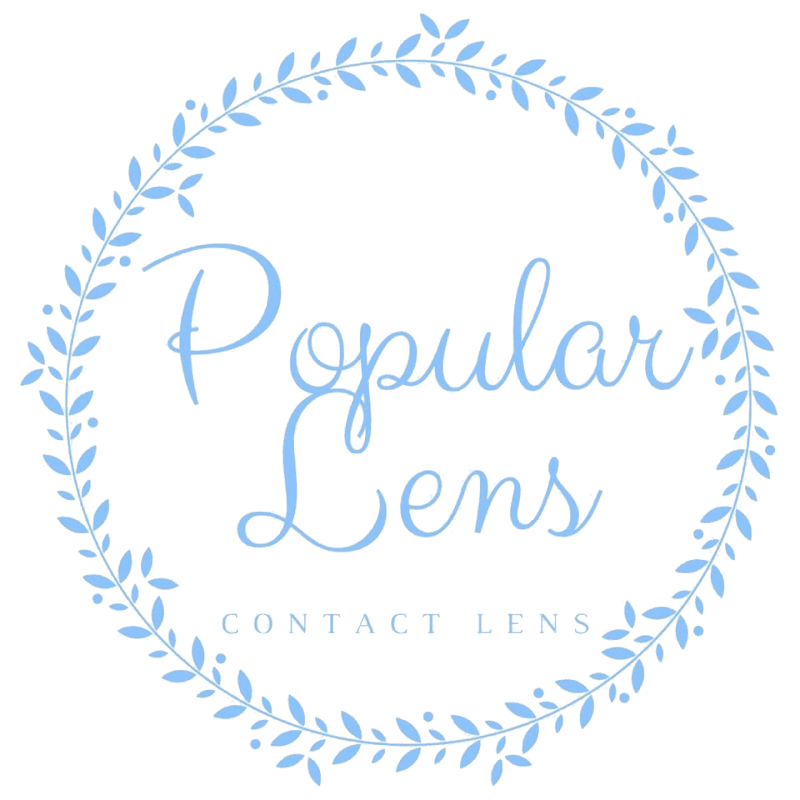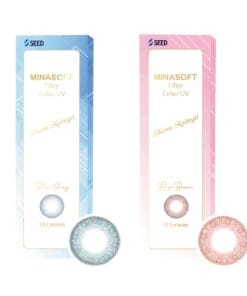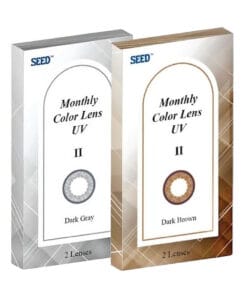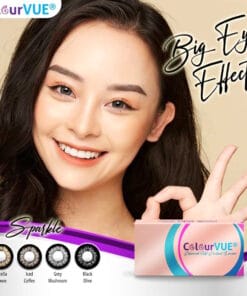Good Habits, Lifestyle, Tips
Getting Started With Contact Lenses: A Beginner’s Guide
Getting started with contact lenses requires users to be aware of certain practices and aspects before being able to use lenses properly. There are many ways to get started when it comes to using contact lenses. Listed below are some of the best ways for contact lens users.
Getting Started With Contact Lenses 1: Professional Eye Exam
Starting with a professional eye test is among the most crucial things you should starting with contact lenses. Though it would be appealing to go straight to try lenses on your own, an eye examination guarantees your eyes are free and appropriate for contact lens use.
Your optometrist will conduct a thorough examination at the appointment time to assess your eye shape, check your vision, and screen for any underlying disease that may impact lens comfort or safety. It’s also important to mention here that a prescription for contact lenses includes measurements like base curve and diameter. These determine the most appropriate fit for your eyes.
-
 SEED Minasoft 1Day Color UV30.91USD
SEED Minasoft 1Day Color UV30.91USD -
 SEED Monthly Color Lens UV II Cosmetic Contact Lenses21.82USD
SEED Monthly Color Lens UV II Cosmetic Contact Lenses21.82USD -
 ColourVUE Sparkle Monthly Disposable27.27USD
ColourVUE Sparkle Monthly Disposable27.27USD -
 MaxVUE Airsoft Multifocal Monthly Disposable Contact Lenses52.73USD
MaxVUE Airsoft Multifocal Monthly Disposable Contact Lenses52.73USD -
 FreshKon 1-Day Charmante Colors Lenses30.00USD
FreshKon 1-Day Charmante Colors Lenses30.00USD -
 FreshKon All Day O2xy Colour Monthly24.55USD
FreshKon All Day O2xy Colour Monthly24.55USD
However, a prescription for glasses is Ill-fitting lenses can cause infections, blurry vision, or discomfort. Your optometrist will also advise you on the best type of lenses according to your lifestyle needs that could be daily disposables for convenience or monthly lenses for economy. Usually included in the procedure is a trial fitting, which lets you evaluate how the lenses feel and receive individualised advice on removal, insertion, and care. This is also your chance to ask questions and handle any worries you could have regarding contact use.
Beginning with a professional exam helps you avoid typical errors and guarantees your eyes remain healthy and comfortable as you make the transition, therefore setting you up for success. Always follow up with routine checkups to keep your eyes in top shape and adjust your prescription as needed.
Getting Started With Contact Lenses 2: Learn Proper Hygiene

Contact lenses particularly need proper hygiene to protect your eyes from infections and ensure a pleasant wearing experience. Always wash your hands well with soap and water before you handle your lenses. Rather than rubbing them with a clean, fibre free towel, never use cloths or anything made of fibres.
Follow the cleaning directions exactly if you are using reusable lenses (bi-weekly or monthly). Clean and store your lenses only with the advised contact lens solution; never use tap water, saliva, or any DIY solutions as these can expose your eyes to dangerous bacteria. Every day, replace the solution in your lens case; resist topping it off with old solution. Regularly, preferably once every few days, clean your lens case and replace it totally every three months.
If you wear daily disposables, you get a little of a shortcut; yet, clean hands are still essential as there is no need for storage or cleaning. Throughout the day, refrain from touching your eyes or lenses with unclean hands. Contact lenses are medical devices made specifically for your eyes alone, therefore never share them with anyone else.
Starting with the right hygiene can help to avoid redness, irritation, and more severe diseases like corneal ulcers. A regular routine makes lens care second nature, allowing you to enjoy clear vision conveniently and safely without Good hygiene is the basis of effective contact lens wear, not only a recommendation.
Getting Started With Contact Lenses 3: Stick To A Wearing Schedule
Following a correct wearing schedule is among the most crucial advice for novices starting with contact lenses. Since contact lenses require adjustment for your eyes, start slowly is wise. Start by wearing your lenses for only a few hours each day around 4 to 6 hours and then, depending on your comfort level and the recommendation of your eye care professional, progressively increase the duration over a week.
Especially during the initial several days, resist the temptation to wear your lenses for too long; overuse might cause dryness, pain, or even eye infections. Follow the replacement plan advised for your particular kind of lenses as well; this is very important.
Daily disposable lenses should be disposed of after one use; monthly or bi-weekly lenses require appropriate cleaning and should be replaced on schedule to avoid protein or bacteria development. Even if your contacts still feel fine, never attempt to stretch their usage beyond their specified period that can endanger your eye health. Most importantly, unless they are meant for overnight wear, never sleep in your contact lenses as doing so raises the risk of eye irritation and infection.
One approach to stay on track with your lens routine is to set reminders or marks on your calendar. Being regular and attentive with your wearing schedule helps you not only maintain eye health but also ensure a seamless and effective switch to wearing contact lenses.
Getting Started With Contact Lenses 4: Always Have A Backup Plan

Always have a backup plan when you first use contact lenses. Although wearing contacts is handy, things don’t always go as expected and you should be ready. First and foremost, always have a set of glasses with you.
Accidents can occur whether you are out for a day at work, traveling, or running errands. Having a set of spectacles on hand will save you from squinting or being unable to see clearly should you experience pain, your lenses dry out, or you need to take them for any reason.
Also include a little contact lens care kit in your car or baggage. In case your eyes get dry or irritated, this should include a clean lens case, extra lens solution, and eye drops. Some even have additional contact lenses just in case one rips or disappears. Having these basics close at hand will enable you to handle anything should something go wrong.
Finally, be sure you know your lens’s wearing limits. If you use extended wear lenses, be aware of replacement timing. With the best care, contacts can still irritate occasionally; hence, having an alternate remedy will help you relax by being ready. Having a backup plan gives you the confidence to appreciate the freedom contact lenses provide by guaranteeing you never find yourself in a situation where you cannot see clearly.
Getting Started With Contact Lenses 5: Watch For Warning Signs
Starting with contact lenses, paying attention of any warning signs suggesting unpleasantness or an eye problem is quite important. Wearing contacts should never irritate or hurt your sensitive eyes. Removing your contacts right away and checking your eyes is crucial if you see redness, hazy vision, or constantly ache.
Sometimes, a bit of dust or debris can irritate, but if the symptoms last, it may suggest that your eyes are responding badly or the lens isn’t fitting correctly. If your eyes are not adapting well to the contacts or are trying to compensate for discomfort, too much ripping indicates this. Don ignore it if you sense something strange.
-
 SEED Minasoft 1Day Color UV30.91USD
SEED Minasoft 1Day Color UV30.91USD -
 SEED Monthly Color Lens UV II Cosmetic Contact Lenses21.82USD
SEED Monthly Color Lens UV II Cosmetic Contact Lenses21.82USD -
 ColourVUE Sparkle Monthly Disposable27.27USD
ColourVUE Sparkle Monthly Disposable27.27USD -
 MaxVUE Airsoft Multifocal Monthly Disposable Contact Lenses52.73USD
MaxVUE Airsoft Multifocal Monthly Disposable Contact Lenses52.73USD -
 FreshKon 1-Day Charmante Colors Lenses30.00USD
FreshKon 1-Day Charmante Colors Lenses30.00USD -
 FreshKon All Day O2xy Colour Monthly24.55USD
FreshKon All Day O2xy Colour Monthly24.55USD
Better is to remove the lenses, let your eyes rest, and consult your eye care specialist. Lens drying or insufficient humidity, which might lead to pain or even infection, could be picked up on as dry eyes or a rough sensation in the eyes. Should you experience some inflammation, acute pain, or light sensitivity, call your eye doctor urgently.
More serious problems could be signs of corneal abrasion or an eye infection. Maintenance of your lenses, following cleanliness procedures, and paying attention to your eyes all are absolutely required for a secure and pleasant contact lens experience. To ensure good vision well into the future, always lean on the side of prudence.
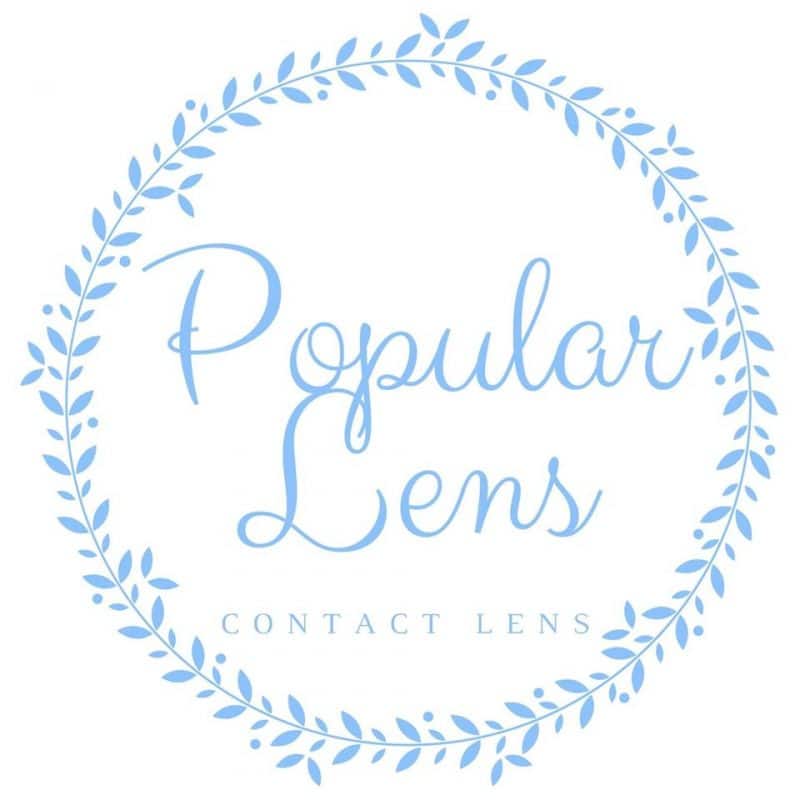
We are a company of optometrists & opticians. We focus on providing our customers with their preferred optical products to improve visual acuity and enhance their quality of life. At PopularLens, you will find niche and exclusive brands.
 Free Shipping within SG With Order Over $80
Free Shipping within SG With Order Over $80 Lowest Price Guarantee
Lowest Price Guarantee
